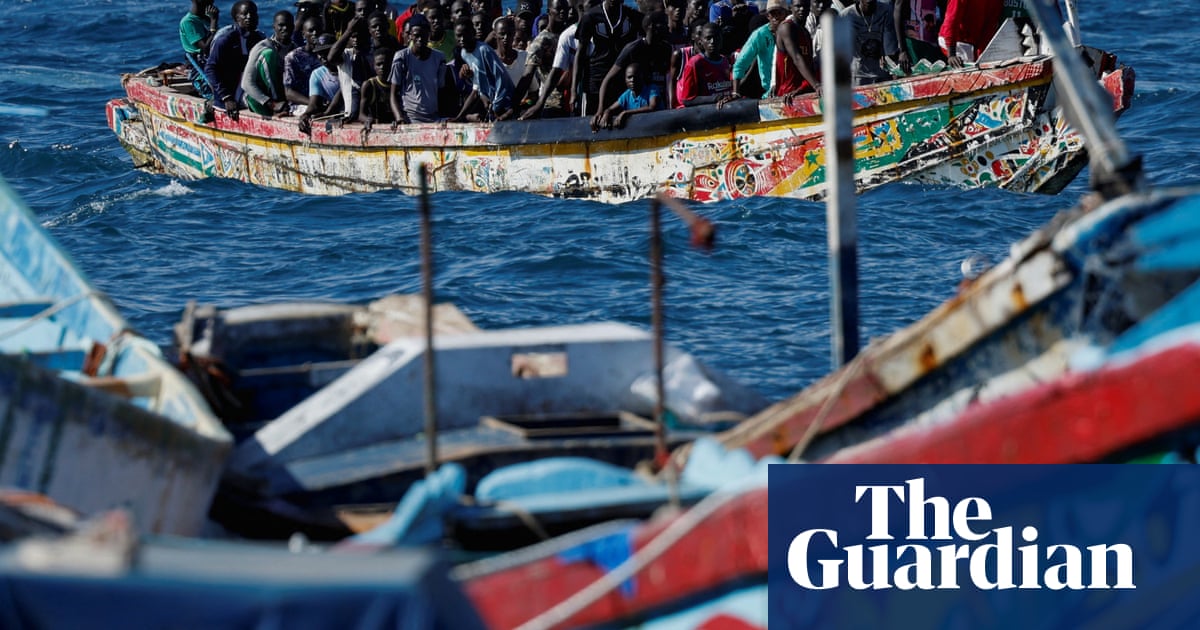A court in the Canary Islands has ordered the closure of a centre for unaccompanied migrant children, citing allegations that include physical abuse, hate crimes and threats.
Police entered the centre on the outskirts of Las Palmas on Monday where 43 children were being housed. A court on the island – the first in Spain to specialise in violence against children and adolescents –saidit had asked police to carry out the raid “in light of the extensive evidence and testimony” of alleged crimes taking place in the centre.
At least nine employees were detained for several hours and officials said further arrests had not been ruled out. Few other details were provided as the court said it had ordered the investigation to be carried out in secret.
The court said regional authorities had been notified to ensure they could “take the necessary measures to ensure the wellbeing and protection” of the children housed at the centre.
In recent years there has been arise in numbersof people turning to the treacherous Canary Islands route, one of the mostdangerous crossingsinto Europe, setting off in unstable vessels that are often unfit to face the fierce currents of the Atlantic.
The surge in arrivals has included thousands of unaccompanied children, and officials in the Canary Islands have repeatedly said the region is overwhelmed.
In March the region, which at the time boreresponsibility for about 37%of the unaccompanied children who had arrived in Spain, told Spain’s supreme court that more than 1,000 unaccompanied children were living in overcrowded conditions and were without access to adequate resources.
A recent investigation by Amnesty International highlightedseveral other issueswith the islands’ network of more than 80 centres for unaccompanied children, including a lack of staff with proper training, with “nightclub bouncers” in some cases hired to staff the centres. It said it had documented allegations of abuse including excessive punishments that had forced children into isolation or deprived them of food.
Virginia Álvarez, of Amnesty,said: “These situations are unacceptable. Let’s remember that we’re talking about children who often arrive in very vulnerable situations.”
She said many of the children had fled human rights violations or were survivors of violence and trauma, and all of them were now grappling with uncertainty and anxiety about their future.
Sign up toThis is Europe
The most pressing stories and debates for Europeans – from identity to economics to the environment
after newsletter promotion
For more than a year, Spanish politics has beenbeset by wranglingover who exactly is responsible for these children, pitting the regional government in the Canary Islands against the central government. Earlier this year, the Spanish central government announced amandatory programmethat would force regions across the country to help take in these children, setting off tensions with some of the regions led by the conservative People’s party.
After releasing its investigation in March, Amnesty said the blame lay with various administrations, from the Canary Islands officials who had carried out28 inspectionsof children’s centres in the span of five years, to the central government and the regions that were refusing to act in solidarity.
Esteban Beltrán, the director of Amnesty International Spain,said: “Failures in the protection system in the Canary Islands are a shared responsibility. They continue to pass the buck to one another and, as a result, children remain without adequate protection.”
